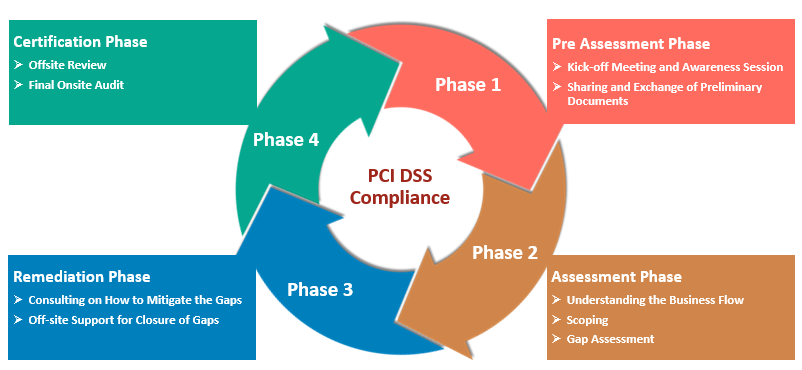Why is PCI DSS compliance required?

PCI DSS compliance
Payment Card Industry Data Security Standard is called PCI DSS. It provided the information for the technical and the operational requirements for protecting the account data. It applies to all those who store, process or transmit cardholder data and payment authentication data.
There is an increase in the electronic payment systems and this also led to an increase in cyber crimes. If the PCI DSS compliance is not followed then there are changes of security breach. A security incident may damage the brand’s reputation. There may be loss of customers and drop in revenue. It may lead to legal actions too.
Benefits of PCI DSS
The many benefits of PCI DSS are as follows:
The PCI DSS ensures that the system is secure and this helps to develop the trust of the customers.
It reduces the risk of cyber crimes and makes cardholder data and cardholder data environments safe.
Being PCI compliance will help the businesses to grow and they can promote themselves as secure businesses.
The business can promote themselves as committed to protecting the customer data by following PCI DSS.
Following PCI DSS will prepare the businesses better with the other regulations standards like ISMS and more.
If PCI DSS is implemented successfully then it will lead to an overall improvement in the IT infrastructure.
Requirements for PCI DSS
The following are the PCI DSS compliance requirements:
You should install and maintain a secure firewall to restrict the incoming traffic. You should follow a strict password usage policy.
The stored customer data should be protected and you should encrypt the customer data across networks.
You should install and maintain anti-virus software and do the necessary updates on the devices that manage cardholder data.
You should control the access to the cardholder data and unless specified the data should not be available to any person.
You should avoid physical access to data and use authentication policies for accessing system data.
All the activities regarding the cardholder data must be maintained in a log and you should regularly test the cardholder data systems for vulnerabilities.
You should maintain an information security policy for all personnel.